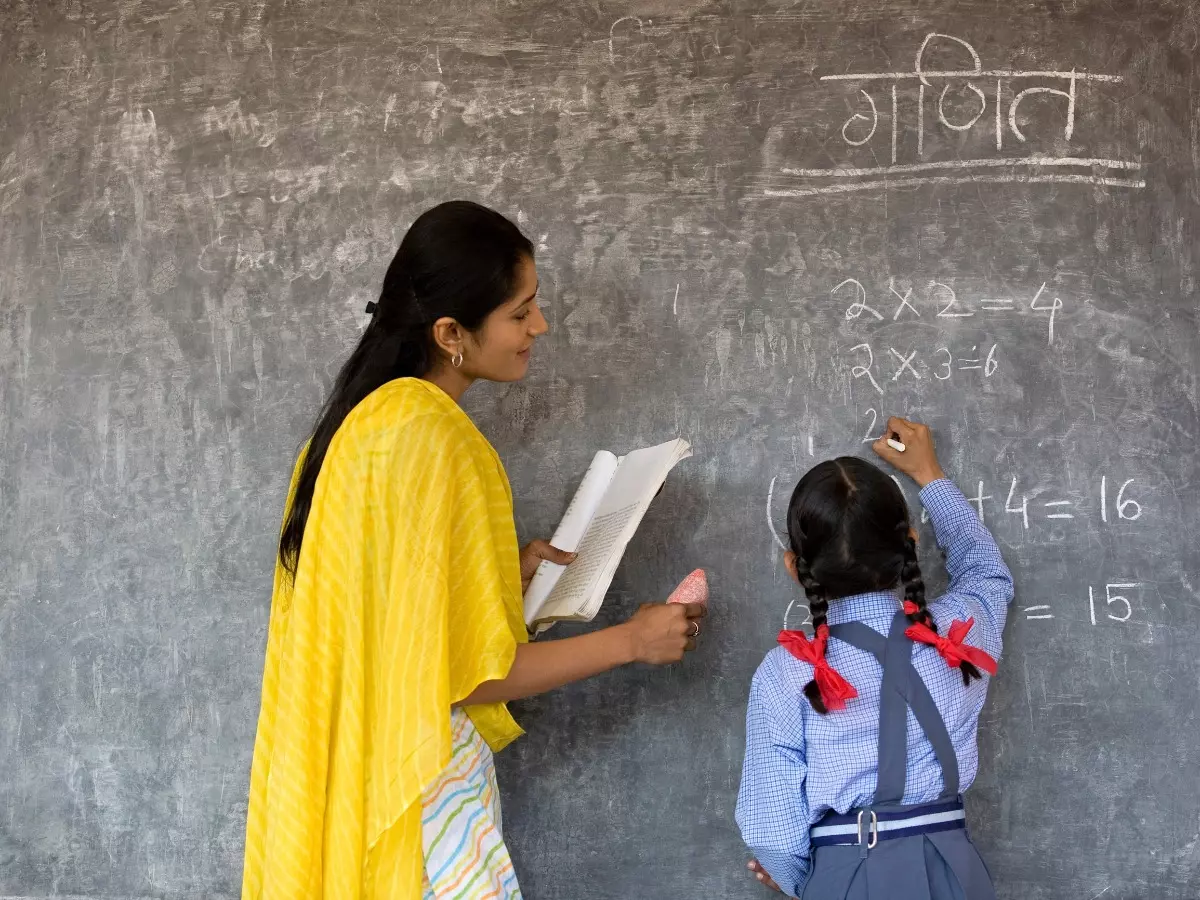Opinion: Nurturing Teacher Development And Performance To Cultivate Excellence
¡°Does my teacher also have a teacher?¡± asked my daughter as she continued writing her daily almanac. This innocent question from a child sparks a crucial reflection on the ongoing professional development of educators.

¡°Does my teacher also have a teacher?¡± asked my daughter as she continued writing her daily almanac. This innocent question from a child sparks a crucial reflection on the ongoing professional development of educators. While educational boards mandate ¡®capacity building programmes¡¯ for educators, the lack of a robust system that monitors the relevance and effectiveness of these trainings persists. This article delves into the importance of nurturing teachers¡¯ development and performance for educational excellence.
 indiancurrents.org
indiancurrents.org
The Perceived Myth of Perfection
Our present education system continues to fixate on the curriculum, assessments, and pedagogy within classrooms filled with children without keeping an equal focus on nurturing their teachers¡¯ development journey. It¡¯s almost as if we¡¯re saying that once you become an educator, there¡¯s nothing more left to learn. This prevalent notion that educators reach a point of perfection and cease to learn hampers the adaptability of the Indian education system. Shifting this narrative to acknowledge continuous growth and learning as an imperative in the education system can significantly contribute to staying relevant in a rapidly changing world.
Lifelong Learning for Teachers
Every teacher was once a student, but why once though? When students are exhorted to become lifelong learners, why should learning stop for the ones who teach? Even as educational institutions recruit educators who have, at a point in time, demonstrated their skill and aptitude for teaching, they must start the process of enabling further enhancement of this aptitude and skill. Here are three things to consider that can make for a well-entrenched programme of nurturing educator development and performance to cultivate excellence:
School Culture of Support and Collaboration
Creating a school culture of support and collaboration to foster an environment where teachers feel comfortable expressing their needs is a critical first step in building a system that supports their development. A culture that supports seeking timely assistance for a teacher¡¯s ¡®I don¡¯t know, and require developmental support¡¯, versus one that accepts ¡®I don¡¯t know and cannot/will not seek support¡¯, goes a long way in remedying professional gaps, which can otherwise damage an entire ecosystem. The right school culture encourages healthy conversations between educators, their peers, and leaders for continuous improvement.
 Unsplash
Unsplash
Diverse Professional Development Avenues
Providing a robust mix of various professional development avenues, from workshops and conferences to seminars and programmes that cater to a wide variety of learning, is a deal-maker. Some educators may need an online classroom to revisit their subjects, considering recent changes to curricula or even real-world applications. Yet others may require support in imparting knowledge through developing a deeper understanding of different teaching techniques. Some of them might even want to explore technology to support their teaching practices. Instead of a ¡®one-size-fits-all mandatory professional development hours approach,¡¯ offering a variety of choices that teachers can pick and choose from based on an accurate assessment of their own learning needs is pivotal to continuous professional development.
Reflective Practice and Mentoring
Promoting a system of reflective practice, supported by effective feedback and mentoring, enables them to self-identify their own learning needs while validating the same through peer and mentor-led feedback. This also becomes a significant step towards introducing teacher autonomy in teacher development.
A Glimpse into the Scope of Effective Teacher Development
Teacher development remains an exciting space with immense scope for developing meaningful learning pathways for educators and is a ¡®make or break¡¯ factor for any institution. Teaching development programmes must focus on empowering educators for transformational leadership in the teaching and learning space. Keeping ¡®Educator at the core¡¯, the training methodology must be based on providing immersive, experiential, and inclusive training experiences. Setting up teaching standards and supporting their evolution through learning frameworks for educators is a significant differentiator at the K-12 education level. Schools that value excellence within the classroom also keep a relentless focus on educator development programmes, as they understand that a classroom is only as good as its teacher. A student¡¯s learning journey is impacted, to a great extent, by the learning journey of their teacher.
Final Thoughts
Schools that prioritise teacher development recognise its direct impact on the students¡¯ learning journey. The need for strategic planning, creation, and execution of comprehensive learning programs for educators to achieve institutional excellence cannot be emphasised more. A well-organized system for delivering best-in-class learning programs for educators is, therefore, a key element and stands as a strategic driver for achieving institutional excellence and quality when building an academic institution of repute.
About the author: Arti Dawar is theChief Operating Officer and Director of People and Culture at Shiv Nadar School. All views/opinions expressed in the article are of the author.
